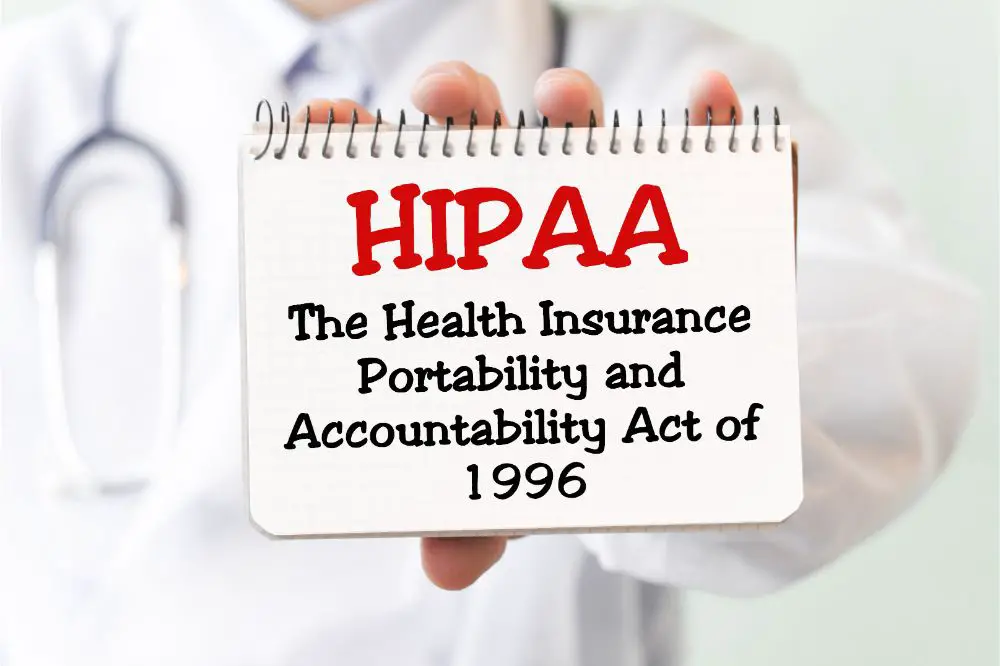Published by Lookforzebras
HIPPA compliance is critical for doctors’ offices. By ensuring that patient medical records are kept confidential, HIPPA helps protect patients’ privacy and helps to prevent identity theft. In addition, its compliance helps to ensure that patient medical information is accurately maintained and accessible only to authorized personnel. By protecting patient medical information, HIPPA also helps safeguard the quality of healthcare.
Doctors’ offices are required to comply with HIPAA regulations to protect their privacy. The Health Insurance Portability and Accountability Act (HIPAA) is a federal law that requires covered entities, such as doctors’ offices, to maintain the confidentiality of protected health information (PHI).
Protected health information is any information about a patient’s health that may be used to identify the patient. A covered entity is also required to take steps to protect the privacy of PHI, such as implementing security measures to protect electronic information. HIPAA-covered entities offer privacy protection from unauthorized people. It plays an active role in this regard. Any healthcare industry should take care of all these things. In case of any violations of privacy laws, the organization may face huge penalties.
What is HIPAA?
The Health Insurance Portability and Accountability Act of 1996 (HIPAA) is a United States federal law that regulates the handling of protected health information by covered entities. The law established national standards to protect sensitive patient health information from being improperly disclosed.
The HIPAA Privacy Rule establishes restrictions on who can access a patient’s health information and under what circumstances they can access it. The HIPAA Security Rule sets standards for how covered entities must secure electronically protected health information.
How is HIPAA helpful for patients?
HIPAA is a set of federal regulations that helps protect the privacy of patients’ health information. This information can include anything from medical records to insurance information. HIPAA also sets standards for how this information can be used and shared.
This is important for doctors’ offices because it helps to ensure that patients’ confidential information is protected. This can help build trust between patients and their doctors, and it can also help prevent fraud or identity theft.
HIPAA also sets standards for how doctors’ offices must secure patient information. These standards dictate that offices must use encryption technology to protect information when it is being transmitted or stored. This helps to keep patient information safe and secure.
What are the challenges of HIPAA for doctors’ offices?
One of the biggest challenges for doctors’ offices regarding HIPAA is ensuring that all patient information is kept confidential. This can be a challenge if staff members are not adequately trained on how to handle patient information or if there is a lack of security measures in place.
Another challenge is ensuring that patients’ privacy is protected regarding their medical records and other information. This can be a challenge if patients are not made aware of their rights under HIPAA or if there are no adequate security measures to protect their information.
How does HIPAA help doctors’ offices?
HIPAA stands for the Health Insurance Portability and Accountability Act. It was passed in 1996 and set privacy standards for health care providers, health insurers, and employers. The law was designed to protect the privacy of patients’ health information.
It requires doctors’ offices to take steps to protect a patient’s privacy. This includes taking measures to prevent the unauthorized release of information and destroying patient records when they are no longer needed.
HIPAA also requires doctors’ offices to create and implement a privacy policy. This policy must include how the office will protect patient information, how patients can access their information, and how the office will respond to a breach of patient privacy.
It is designed to protect patient privacy but it also helps doctors’ offices by creating standards for handling information. This can help prevent mistakes that could lead to a breach of patient privacy. HIPAA also gives patients peace of mind knowing that their health information is being protected.
Overall benefits of HIPPA
- It gives patients more control over the copies of health data.
- It sets boundaries to limit the disclosures of health data.
- It establishes appropriate safeguards that health care providers and others must achieve to protect health information privacy.
- It holds violators accountable, with civil and criminal penalties that governments can impose if they violate patient health records and privacy rights.
- It strikes a balance when public responsibility supports disclosure of some forms of data – for example, to protect public health.
- For patients, it means being able to make informed choices when seeking care and reimbursement for care based on how entities may use personal health information.
- It enables patients to find out how their information may be used and about certain disclosures of their information that have been made.
- It generally limits the release of information to the minimum reasonably needed for the purpose of the disclosure.
- It generally gives patients the right to examine and obtain a copy of their own health records and request corrections.
- It empowers individuals to control specific uses and disclosures of their health information.

The different types of violations that can occur under HIPAA
There are several different types of violations that can occur under HIPAA. These violations can include unauthorized access to PHI, failure to comply with security requirements, and improper disposal of PHI. It is essential to be aware of these different types of violations and take steps to prevent them from happening.
Unauthorized disclosure of protected health information (PHI)
The unauthorized disclosure of protected health information (PHI) is a severe issue that needs to be addressed. PHI includes any information that can identify an individual and it is essential to keep this information confidential. There are many ways to unauthorized disclose PHI and it can have severe consequences for both the individual and the organization.
Improper disposal of PHI
Now that we have seen the various ways in which PHI can be mishandled, it is crucial to understand the consequences of such improper disposal. As we have seen, there are a variety of potential risks associated with the improper handling of PHI, including identity theft, fraud, and public disclosure.
In addition, agencies that investigate HIPAA violations can impose heavy fines on violators. In some cases, individuals can also be subject to criminal charges. Therefore, covered entities and their employees must take care to appropriately handle PHI to avoid these risks.
Lack of safeguards of electronic PHI
The lack of safeguards of electronic PHI leaves it vulnerable to potential cyberattacks. In the event of a data breach, patients could be at risk for identity theft or other malicious activities.
Organizations need to take steps to ensure the security of their electronic PHI, such as implementing strong passwords and firewalls. They should also regularly test their security measures to ensure that they are effective. By taking these precautions, organizations can help protect the privacy of their patients and mitigate the risk of a data breach.
The importance of protecting your health information
Your health plan information is important. It’s important to you and to the people who care for you. That’s why it’s so necessary to protect your health information. Your information should be limited to the people you trust, like your personal healthcare provider.
There are many ways to protect your health information and make it limited to specific medical providers. You can protect it by keeping your health records in a safe place and by not telling other people your health information unless you trust them. You can also protect your health information by using a secure internet connection when you send or receive health information.
How to file a complaint if you believe your privacy has been violated
If you believe that your privacy has been violated, you can file a complaint with the Office of the Privacy Commissioner.
To do so, you can either:
– fill out the online complaint form, or
– print and complete the PDF complaint form and send it by mail or fax to the Office of the Privacy Commissioner.
Tips for protecting your personal information when visiting the doctor’s office
If you’re concerned about protecting your personal information, there are a few things you can do when visiting the doctor’s office. First, make sure to ask the staff if they have a privacy policy in place. If they do, be sure to read it carefully and understand how the staff will use your information. If you’re still not comfortable, you can ask to keep your information confidential. You can also ask to remove your name from the doctor’s files. By taking these precautions, you can help protect your personal information while visiting the doctor’s office.
You can help protect your personal information when visiting the doctor’s office by following these tips.
- Remember to ask about the doctor’s privacy policy and be sure to understand how the medical team will use your information.
- If you’re not comfortable with the policy, ask to keep your information confidential or have your name removed from the doctor’s files.
By taking these precautions, you can help safeguard your personal information while visiting the doctor.
Conclusion
HIPAA is an important law that helps protect the privacy of patients’ health information. It sets standards for how information should be handled and it gives patients peace of mind knowing that their information is being protected. HIPAA also helps doctors’ offices by creating boundaries on using and releasing health records.
Overall, HIPAA is beneficial to patients and health care providers alike. It gives patients more control over their health information, sets boundaries on the use and release of records, and establishes appropriate safeguards to protect health information privacy.

